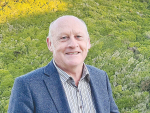The Government wants to make sure that rural communities get a level of service that people who live in cities often complacently expect.
That’s the message from Associate Health Minister Matt Doocey as he begins a rural health roadshow to get a feel for how the present rural health strategy is working. He describes the roadshow as a sort of “performance appraisal”.
The roadshow kicked off a few weeks ago in the Horowhenua township of Levin – a service town for an extensive rural area.
Here Doocey attended a public meeting where he and health officials outlined the strategy and took feedback from the audience of about 70 people. He later visited health facilities in the township, including the Horowhenua Health Centre which provides a range of primary and hospital health services.
He told Rural News that the rural health strategy came into effect a year ago and says it was timely for him to get out into rural areas nationwide to get a personal feel for how it’s working and what improvements could be made.
Between now and October, Doocey will visit 12 towns from the far north to the deep south and places in between, including Kaitaia, Wairoa, Hawera, Thames, Greymouth and Gore.
Doocey says the biggest barrier to timely health care in rural areas is lack of staff. He says doctors, nurses and other health professionals in these areas are doing a great job to give the best service possible.
He says while there are specific targets or timeframes in which people with mental health issues need to be seen – namely a week. There is also a target of four months to see a specialist and 31 days for cancer treatment.
“But there is no such target for primary health. I know my colleague Simeon Brown, the health minister, having seen the success of the mental health target, is thinking about whether we need one for primary health.
“I am not saying for a second that a target is the be-all end and end-all, but when you set a guaranteed level of service to say you want people to be seen by X amount of time by their GP, it allows us to performance manage that and direct investment into that area,” he says.
The Solutions
Matt Doocey admits there is no silver bullet solution to the problem and recognises isolation, distance and geography – in terms of digital tech – are not easy to overcome. He says the idea of telehealth is good, but it needs reliable connectivity.
“You look at Starlink, it is game changer, but not everyone will be able to afford to have their own. It then comes down to using maraes and health facilities like the Levin Health Centre which have rooms set aside for consultations.
“What we want to do is provide a range of things to give people choice and for those with good connectivity, the option of home consultations. For others, it will be nearby centres, while some will still prefer the face-to-face consultations,” he says.
Doocey says overall the objective of the rural health strategy is to make it a priority and to develop a package of creative ways to better service rural people. For example, potentially making greater use of nurse practitioners if there is shortage of GPs and making use of paramedics to treat urgent cases.
He is reaching out to a range of rural organisations and health professionals. He says farmer groups know their community and can provide valuable insights. Doocey adds that by going around the country he may also come across some good programmes that can be applied in other areas.
“For example, in Levin there is an innovative school-based programme dealing with the use of methamphetamine which could be rolled out in other centres,” he says. Doocey hopes that at the end of the roadshow it’s possible that ideas will emerge that he will take back to Wellington and possibly Cabinet.










